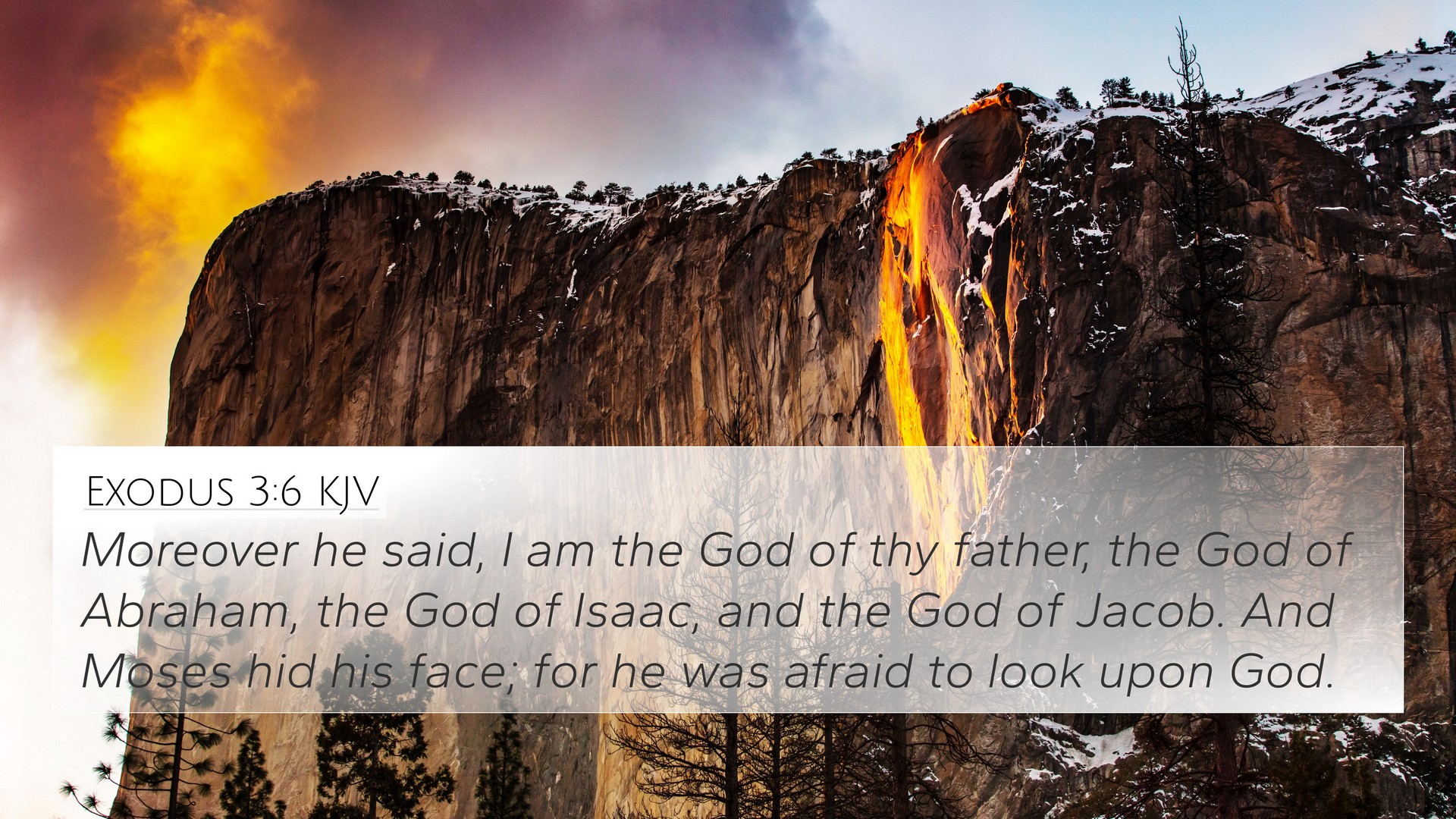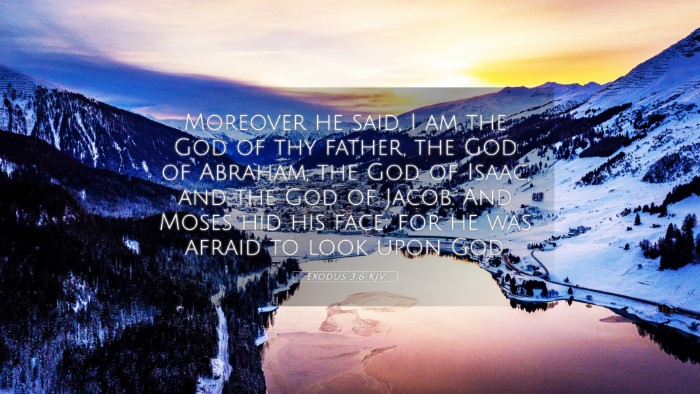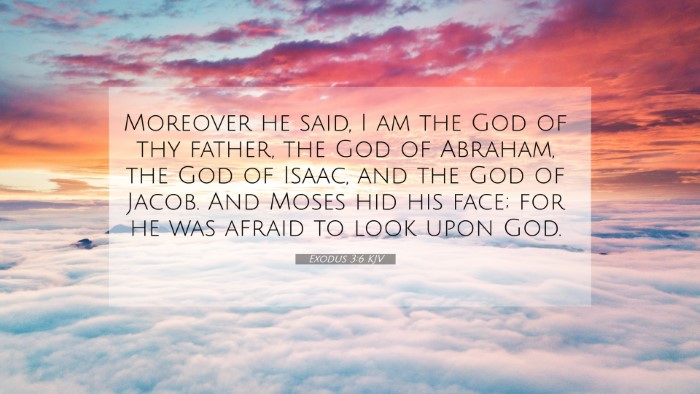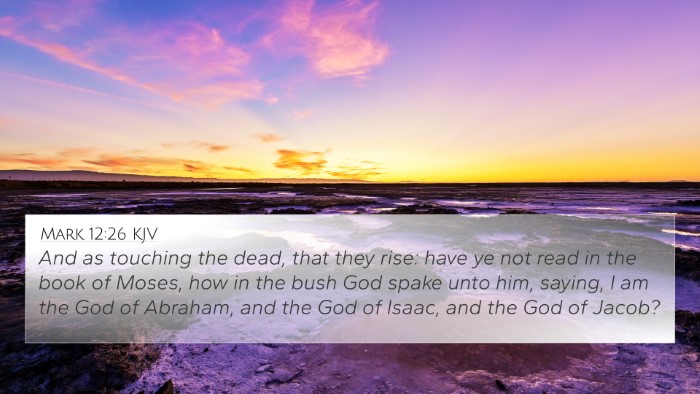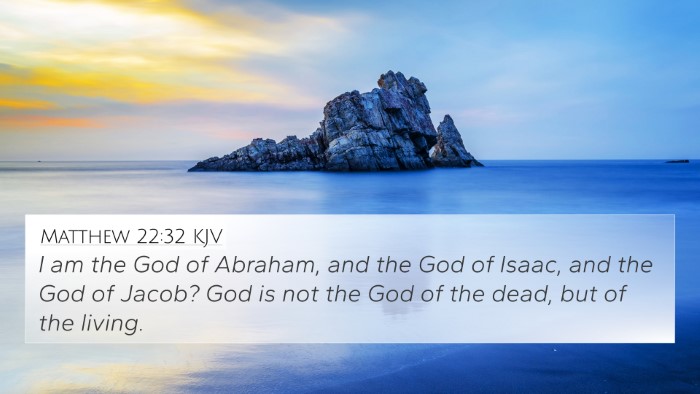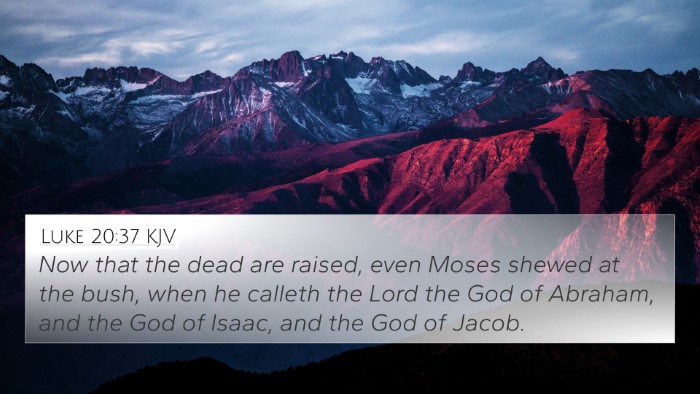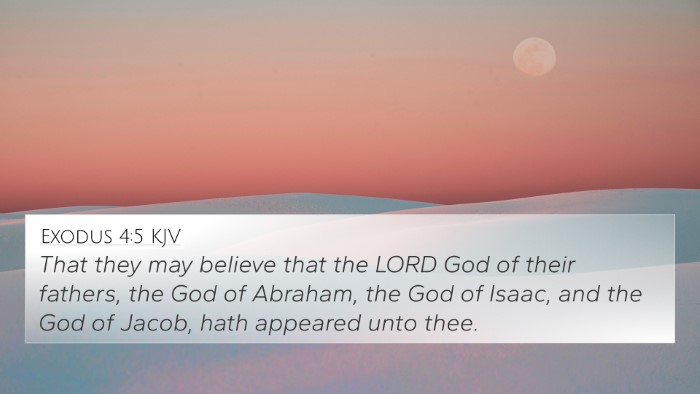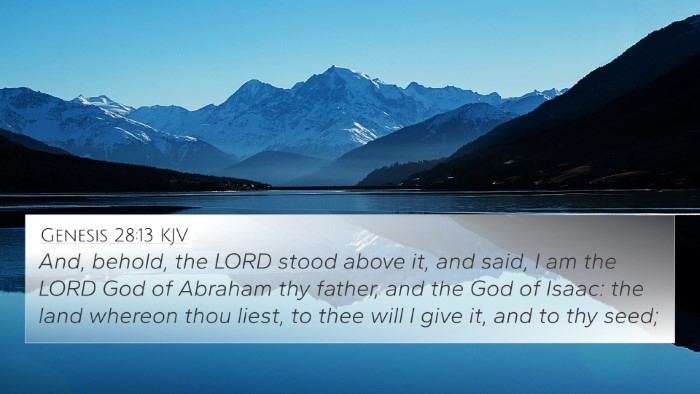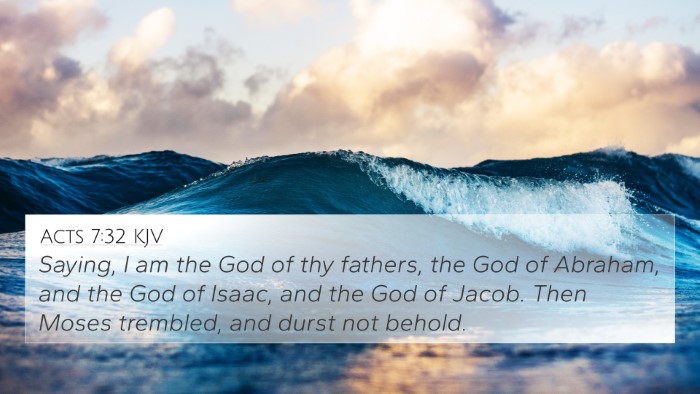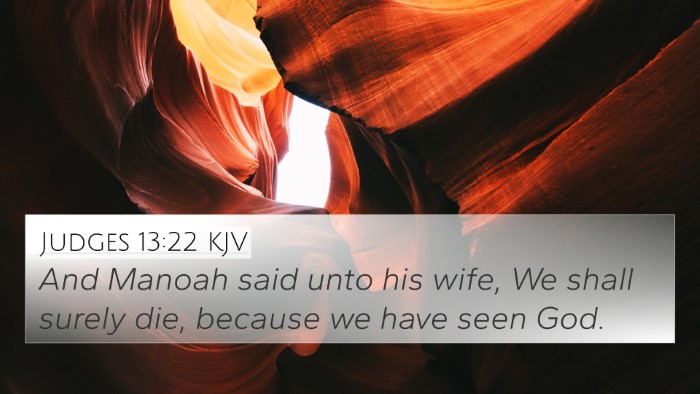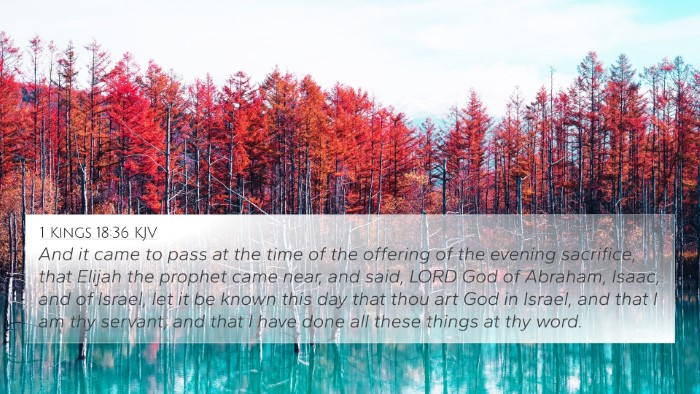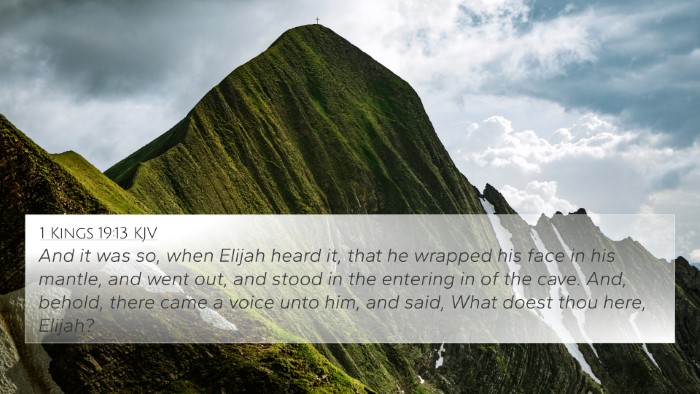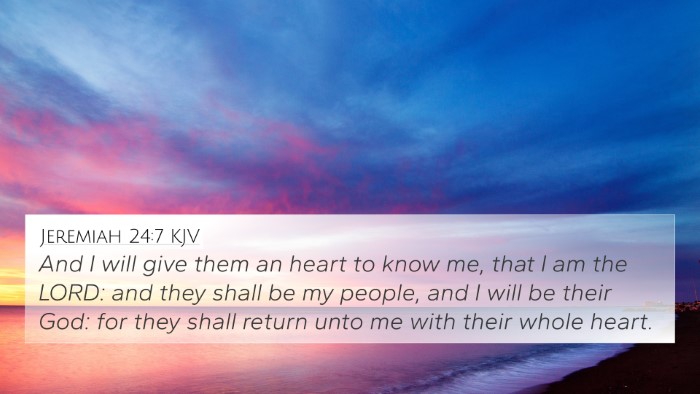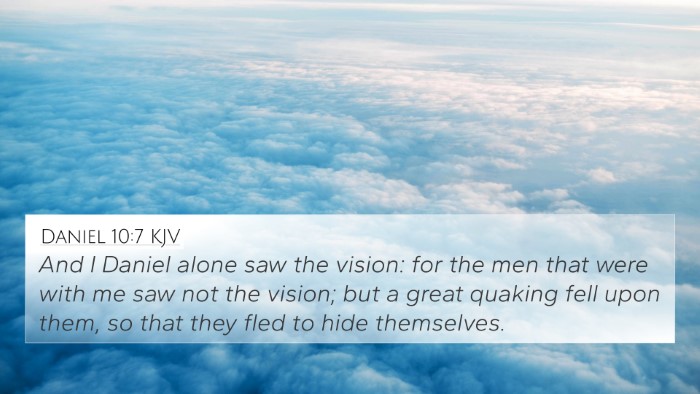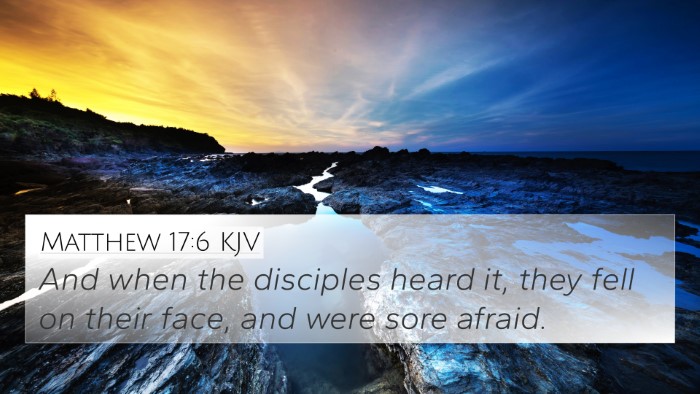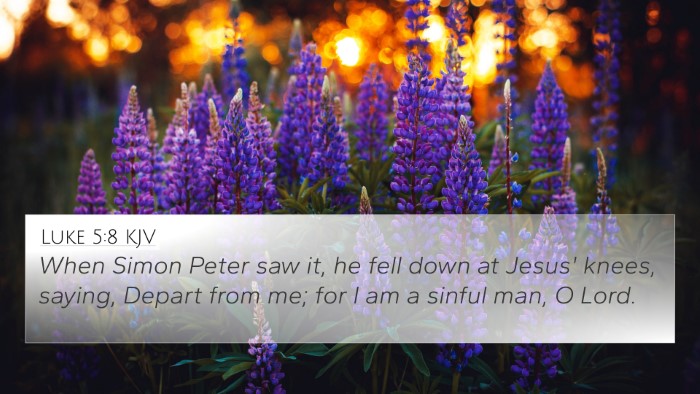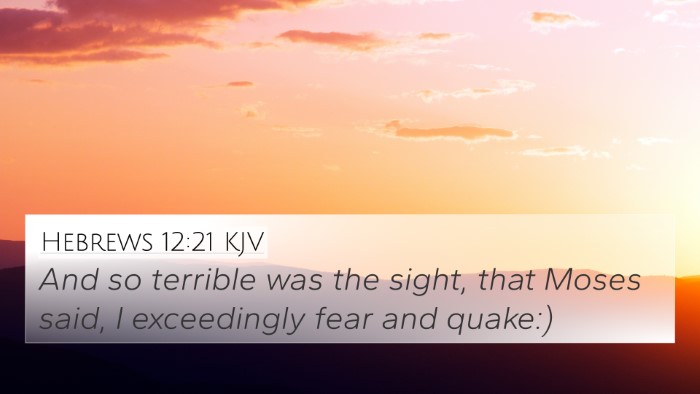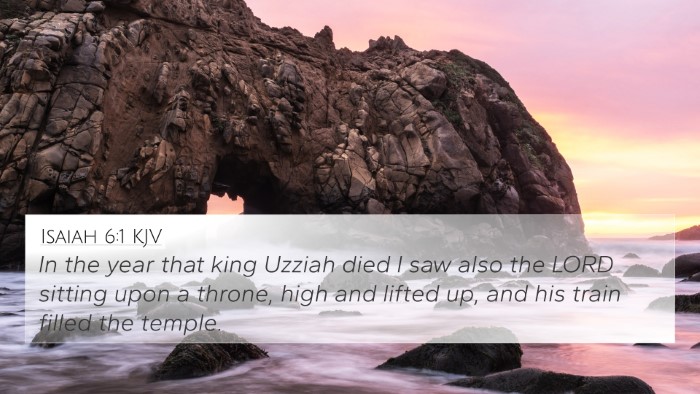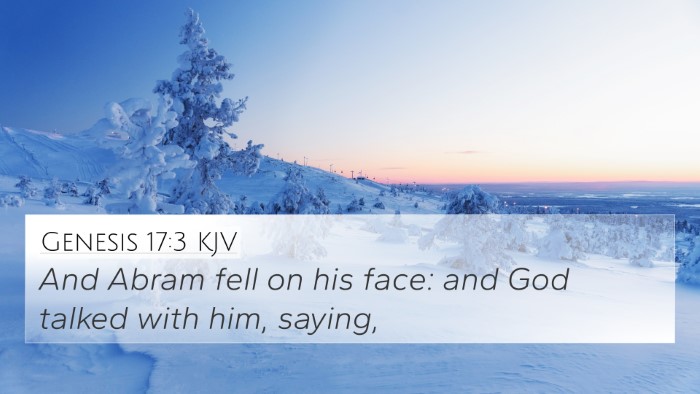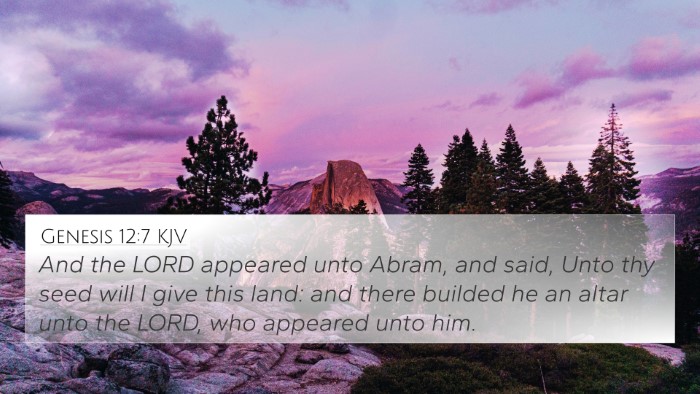Understanding Exodus 3:6
Exodus 3:6 states, "Moreover, he said, I am the God of your father, the God of Abraham, the God of Isaac, and the God of Jacob. And Moses hid his face; for he was afraid to look upon God." This pivotal verse introduces God's self-revelation to Moses and underscores the covenant relationship He has maintained through generations.
Contextual Analysis
This moment occurs at the burning bush where Moses encounters God. Here, God identifies Himself not only as a contemporary presence but as the God of the patriarchs, establishing continuity in His relationship with His people.
Key Themes
- Divine Authority: Identifying as the God of Abraham, Isaac, and Jacob emphasizes God's authority and relational depth with His followers.
- Covenantal Relationships: This verse affirms the enduring promise God has made; it illustrates His ongoing commitment to His covenant people.
- Holiness and Reverence: Moses’ reaction signifies the sacredness of God's presence. The fear he expresses reflects a common human response to the divine.
Commentary Insights
Matthew Henry's Commentary explains that God's identity as the God of the patriarchs serves to reassure Moses of God’s faithfulness and power. It tells us that God does not merely introduce Himself in isolation but highlights His historical relationship with the forefathers, showing that His mission involves continuity with the past.
Albert Barnes notes the significance of the declarative name, suggesting it shows God’s unchanging nature and reflects His eternal covenant, where He connects with past generations of His people.
Adam Clarke elucidates the emotional aspect of Moses' experience, indicating that God’s majestic presence incites a natural reverence, leading to Moses concealing his face in a state of awe.
Bible Verse Cross-References
- Genesis 17:1-8: God establishes His covenant with Abraham, reinforcing the connection made in Exodus 3:6.
- Matthew 22:32: Jesus references the God of Abraham, Isaac, and Jacob, affirming the living relationship with God.
- Acts 3:13: Peter reminds the Jewish audience of the God of Abraham in his sermons, linking back to the covenantal promise.
- Luke 20:37: Jesus again affirms the resurrection by pointing to these patriarchs, emphasizing their ongoing significance.
- Exodus 2:24: This verse highlights God remembering His covenant with Abraham, Isaac, and Jacob, leading into the call of Moses.
- Hebrews 11:16: The faithful looked for a better country, affirming the ongoing nature of God's promises.
- Romans 9:5: Paul discusses the patriarchal lineage, linking God’s promises to the forefathers, thereby interlinking the Old and New Testament themes.
Thematic Bible Verse Connections
The thematic connections between these verses indicate a robust framework of God's interventions in history through covenantal promises. These links play an integral role in understanding the entirety of Scripture, providing insight into God's salvation plan that spans both the Old and New Testaments.
Cross-Referencing Biblical Texts
Utilizing a Bible concordance can significantly enhance the study of these cross-references, allowing deeper exploration of themes such as God's holiness, the fear of the Lord, and the continuity of His covenant. Tools for Bible cross-referencing include digital platforms and concordance guides that help identify similar themes and connections throughout the Scriptures.
Conclusion
In conclusion, Exodus 3:6 serves as a cornerstone for understanding God's enduring relationship with His people, marked by awe-striking holiness and a commitment that spans generations. By engaging in cross-referencing Bible study, one can discover deeper insights and connections that enrich the understanding of God's revelation through His Word.
Additional Keywords and Studies
This verse opens the door to numerous theological studies focusing on how to find cross-references in the Bible, inviting one to explore the inter-Biblical dialogue that develops between various scriptures. By doing so, students of the Bible can uncover poignant themes such as God's unchanging faithfulness and human responses to divine encounters.
Exploring Cross-Referenced Themes
By studying the connections between passages such as those identified above, readers can gain comprehensive insights into God’s character, His redemptive plan, and the overarching narrative of salvation history.
